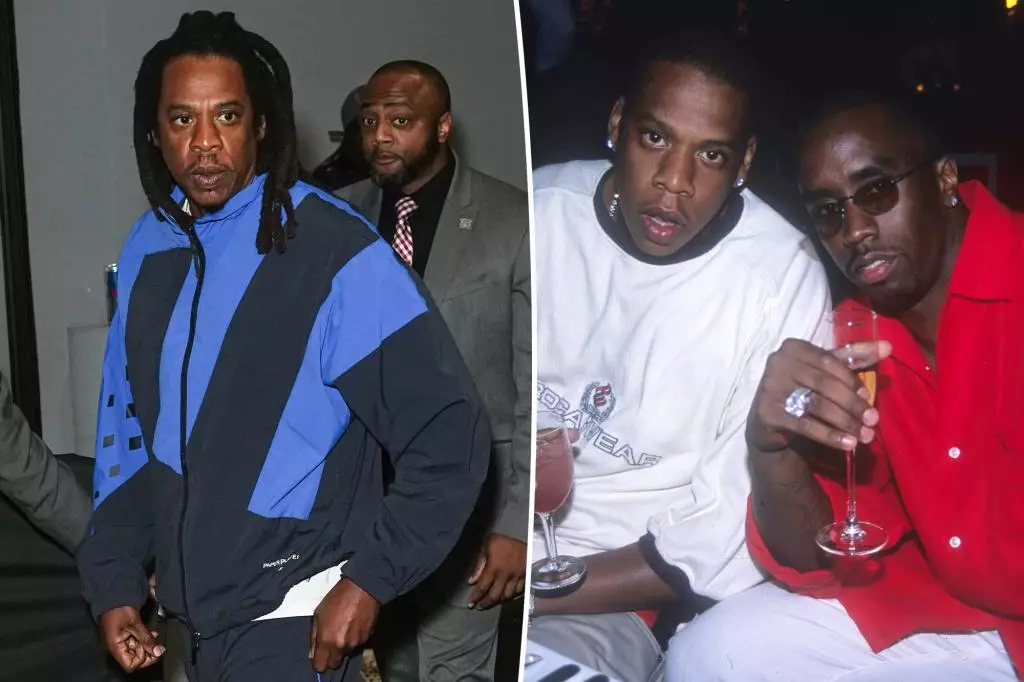In the realm of celebrity culture, where fame often blurs the lines of accountability, serious allegations have resurfaced involving two of hip-hop’s most notable figures: Jay-Z and Sean “Diddy” Combs. A young woman, who has opted to remain anonymous under the pseudonym “Jane Doe,” has accused them of committing sexual assault during a party associated with the 2000 MTV Video Music Awards. This complex case has garnered significant media attention, not only due to the high-profile nature of those involved but also the implications it carries concerning privacy, mental health, and the broader societal discourse surrounding sexual assault.
The plaintiff contends that, at the tender age of 13, she was manipulated into a vulnerable state through drugged beverages and subsequently assaulted by both men. This disturbing narrative raises essential questions about power dynamics, particularly how individuals in positions of fame and influence may exploit others. The gravity of these allegations necessitates a thorough legal process that respects the rights of the plaintiff while ensuring that the accused receive a fair hearing.
Central to the case is a recent ruling by Judge Analisa Torres, who has approved the continued anonymity of the plaintiff as she pursues her lawsuit. The judge’s decision to allow “Jane Doe” to remain unnamed at this stage is pivotal, acknowledging the psychological impact the public exposure can have on someone who has already alleged severe trauma from their experiences. Torres articulated concerns that revealing her identity could exacerbate her struggles with mental health issues, including depression and PTSD.
The ruling has sparked varied reactions, particularly from Jay-Z’s legal team, who had argued vigorously against the anonymity request. Judge Torres did not hold back in her criticism of their approach, condemning the combative and inflammatory tactics utilized by the defense, which she described as detrimental not only to the plaintiff but to the integrity of the judicial process. This reflects a broader trend in legal disputes involving sexual assault, where the determination to either shield or expose a victim’s identity can dramatically affect the case’s trajectory and societal perceptions.
The intersection of media scrutiny and high-profile legal cases introduces a dynamic that can influence public perception and the judicial process itself. Following the ruling allowing the anonymity of Jane Doe, requests for expedited proceedings have emerged from the defense primarily due to “intense media scrutiny.” This highlights an essential tension: the balance between rapid legal proceedings and the ethical considerations of media engagement in sensitive cases.
While it is crucial for defendants to protect their reputations, it is equally paramount to give survivors the space to reclaim their narratives. The consequences of public exposure can be severe, affecting the psychological well-being of plaintiffs and potentially discouraging future victims from coming forward. In this case, the narrative is complicated further by the women’s admission of inconsistencies, which adds layers to how truth is constructed and perceived in these highly charged environments.
As the legal battle unfolds, the implications reach far beyond the individuals involved. The case against Jay-Z and Diddy speaks to ongoing cultural conversations about consent, accountability, and the responsibilities of public figures. The trend of high-profile stars facing legal repercussions for their actions suggests an increasing societal willingness to scrutinize and challenge the traditional narratives surrounding celebrity.
Moreover, as the legal proceedings continue, the outcomes may serve as a litmus test for how the legal system interacts with issues of sexual assault allegations, particularly when significant power dynamics are at play. The legal community faces the challenge of adapting to these complexities while ensuring justice is fairly administered.
The juxtaposition of vulnerability and power in cases like these reveals deep-seated issues within society regarding celebrity culture and sexual violence. As this lawsuit evolves, all eyes will remain peeled on the proceedings, not just as a sensational story but as a critical reflection of our cultural values.

